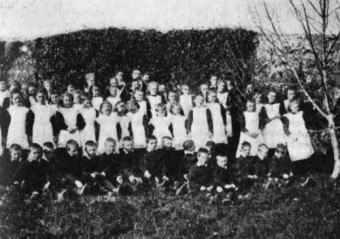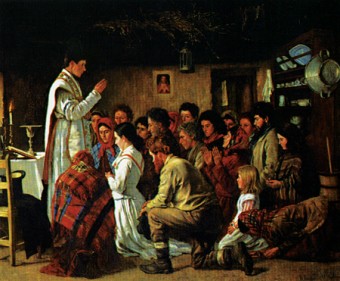Search Results for 'William Rhatigan'
3 results found.
Fr Rhatigan strikes a blow for Rome
On February 28 1879 a desperate row erupted on peaceful Omey Island, near Cleggan, Connemara. The local curate Fr William Rhatigan burst into the local Protestant schoolhouse, run by the Irish Church Mission Society, saying he was ‘in search of his straying sheep’*. An argument broke out between him and the Rev William Lindsey MacNeice, the schoolmaster. Blows were struck. Who struck the first blow will forever be in dispute. But the evidence of Fr Rhatigan’s temper and strength is testified by the fact that it took the combined efforts of MacNeice, aided by his wife, his daughter Charlotte, his young son John Frederick, and two teachers from Claddaghduff, Messrs Davis and Coursey, to force him backwards out of the schoolhouse.
An unseemly brawl over God and scripture

In a week when The Irish Times reports an unseemly brawl between Armenian and Greek Orthodox monks who physically battled over turf and influence in the Church of the Holy Sepulchre in Jerusalem, revered as the site of Jesus’ crucifixion, I was reminded of the unfortunate battle for the souls of Catholics in the aftermath of the Great Famine. This episode in Connemara’s long history still engenders passionate feelings today. The expression ‘they took the soup’ is still very much alive. At the time the campaign for souls splintered communities, and divided families. In a new book Soupers and Jumpers* Miriam Moffitt reminds us that Catholics and Protestants were convinced that their religion - and only theirs - was the ‘one true faith,’ and that anyone who lived, or more importantly died, outside their particular belief system could not enter heaven. From the middle of the 19th century, the poor of Connemara and the Dublin slums were targeted by the well intentioned Anglican Irish Church Missions.
The sad leaving of Mary Mally (Malley?)

The anger and violence that erupted against the Protestant Irish Church Missions and their schools and orphanages in western Connemara towards the end of the 19th century, makes for harrowing reading today.

